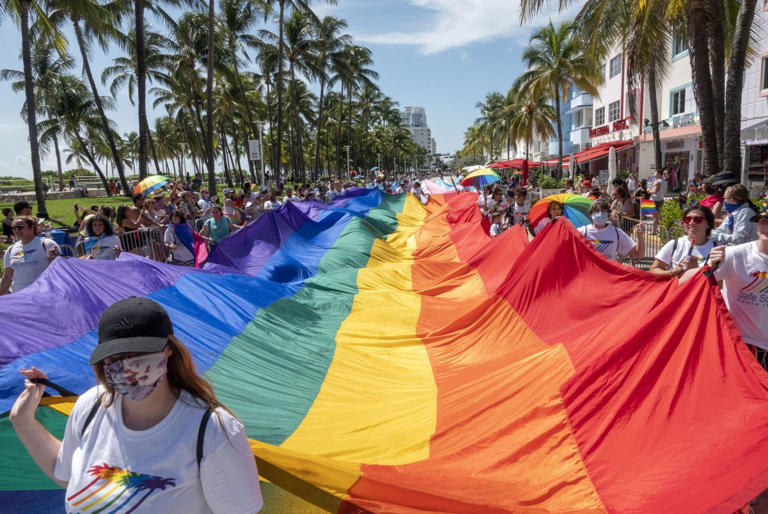In a significant development in the ongoing debate over LGBTQ+ rights in education, Florida has reached a settlement in a lawsuit concerning the controversial “Don’t Say Gay” law. The agreement, announced Monday, marks a milestone in the struggle for inclusivity and protection against discrimination in schools, but it also raises questions about the future of LGBTQ+ education and the boundaries of parental rights.
The “Don’t Say Gay” law, officially known as the Parental Rights in Education Act, garnered widespread criticism upon its passing two years ago. Advocates argued that it stifled discussions about sexual orientation and gender identity in schools, creating an environment of silence and erasure for LGBTQ+ students and educators. The law particularly drew ire for its ban on instruction about sexual orientation and gender identity in primary grades, up to the third grade.
Monday’s settlement represents a compromise between Florida education officials and civil rights attorneys, with both sides claiming victory. Under the terms of the agreement, students and teachers are permitted to discuss sexual orientation and gender identity, provided it is not part of formal classroom instruction. This allowance extends to extracurricular activities and student clubs, safeguarding LGBTQ+ student groups from censorship and discrimination.
Additionally, the settlement reinforces protections against bullying based on sexual orientation and gender identity, recognizing the importance of fostering safe and inclusive learning environments. Notably, the agreement clarifies that references to LGBTQ+ individuals, relationships, or families are permissible in educational and extracurricular contexts, affirming the rights of LGBTQ+ individuals to exist and be acknowledged within school settings.
However, the settlement leaves certain aspects of the “Don’t Say Gay” law untouched, prompting mixed reactions from stakeholders. Florida Governor Ron DeSantis’ office hailed the agreement as a “major win,” asserting that it upholds parental rights and shields children from what they deem “radical gender and sexual ideology” in the classroom. This perspective aligns with the conservative stance that parental authority should dictate the parameters of education regarding sensitive topics.
On the other hand, LGBTQ+ advocates view the settlement as a step forward but remain wary of its limitations. While the agreement allows for discussions about sexual orientation and gender identity, it does not address the underlying issues of censorship and discrimination embedded in the law. Critics argue that relegating LGBTQ+ education to informal conversations perpetuates a culture of marginalization and reinforces harmful stereotypes.
The practical implications of the settlement and its enforcement. Will educators receive adequate training and support to navigate discussions about LGBTQ+ topics sensitively and responsibly? How will schools ensure compliance with the settlement while respecting the diverse beliefs and values of students and families?
Despite these uncertainties, the settlement represents progress in the ongoing struggle for LGBTQ+ rights in education. It signals a recognition of the importance of inclusivity and diversity in school environments and reaffirms the rights of LGBTQ+ individuals to be seen and heard. However, the journey toward true equality and acceptance is far from over, and continued advocacy and vigilance will be necessary to ensure that all students feel safe, supported, and represented in their schools.
